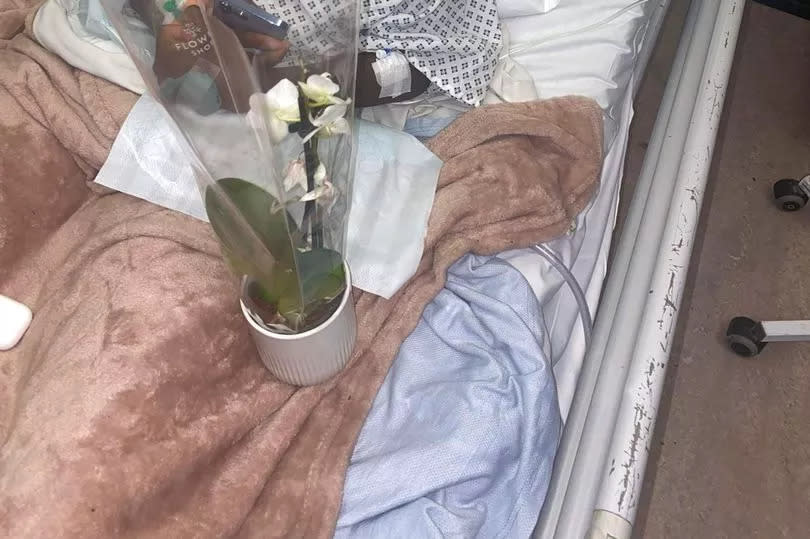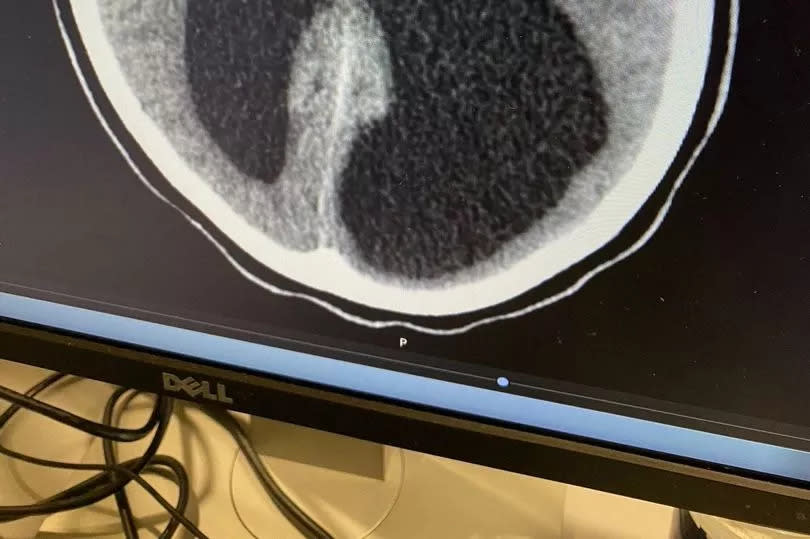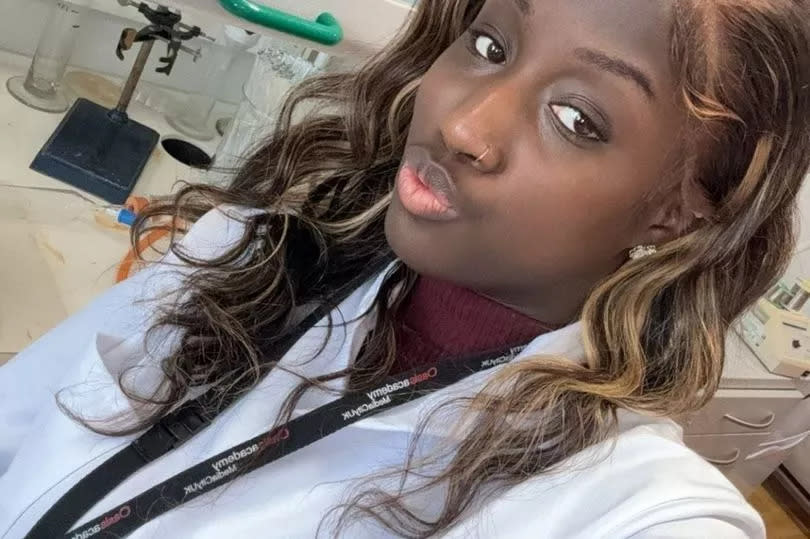'I thought I had a headache - days later doctors told me I was about to die'

A young woman whose headaches turned out to be a potentially fatal condition is urging others to get their symptoms checked.
Josimara Bassangue, who lives in Heywood, was just 20 when she began suffering painful headaches and issues with her balance.
She reached out to her GP who told her she probably had an infection because she also had a high temperature.
READ MORE: 'A cough or a cold could kill my little girl - we're constantly on edge'
But despite being prescribed pain medication, the now 24-year-old's agony persisted, prompting her to go to hospital.
With medics initially believing she may have had meningitis, an infection and inflammation of the fluid and membranes surrounding the brain and spinal cord, Josimara was sent for further testing.
That’s when the secondary school science technician discovered half of her brain was covered in fluid – later being diagnosed with hydrocephalus.

Hydrocephalus is a neurological disorder caused by an abnormal build-up of cerebrospinal fluid in the cavities deep within the brain.
This excess fluid causes the ventricles to widen, putting harmful pressure on the brain's tissues.
Without treatment, hydrocephalus leads to complications including learning disabilities or developmental and physical disabilities.
Complications of this condition also can result in death. When hydrocephalus is mild and it's treated, there may be few, if any, serious complications.
As part of her treatment, Josimara had an intracranial pressure monitor placed into her head. The monitor senses the pressure inside the skull and sends measurements to a recording device.
She then had a shunt fitted, a procedure which helps drain fluid from the brain. Doctors told her the pressure in her brain was so high she would die if she didn’t have it fitted immediately.

But while it was hoped these devices would last for several years, Josimara’s body did not react well and she went on to suffer complications.
She has so far endured eight procedures since her first in 2021 – four more ICP monitors and four more shunts.
And not only has she found the surgeries physically draining, Josimara says she is constantly worried one of her devices could fail again.
“I live with the fear,” she told the Manchester Evening News. “Usually the shunts last for 10 years but I’ve had a new one every year. I even had bleeding on the brain, all sorts of things.
“It affects my mental health – to be a young person with complications when I have my whole life ahead of me.
“I have to stop doing whatever I’m doing to go to the hospital. I have to have a new brain surgery and stop my life again. It’s just very draining.

“Following my diagnosis, I was in shock. It affects me really badly and it’s not like people can see it.
“Despite the physical and emotional toll of these procedures, I have remained steadfast in my resolve to make a difference. I will always be grateful for my neurosurgery team at Salford Royal Hospital.”
Driven by her own personal journey, Josimara has now launched a Gofundme campaign to raise awareness for hydrocephalus. She also has ambitions to set up her own organisation, the Josimara Neuro Foundation.
It’s hoped the funds will help support people affected by hydrocephalus, particularly in Africa, where there is a lack of support and resources.
“My ultimate goal is to raise £20,000 to further support hydrocephalus awareness initiatives and provide essential medical care to those in need,” Josimara added.
“While this may seem like a lofty target, I am determined to make it happen. The funds raised will make a tangible difference in the lives of individuals impacted by hydrocephalus, providing much-needed support and resources.
“Living with hydrocephalus presents its own set of challenges, and I am acutely aware of the struggles faced by individuals in Africa, where access to healthcare and support is limited. It is my hope that through my fundraising efforts, I can help bridge the gap and provide vital assistance to those who need it most.
“My story is a testament to the strength of the human spirit and the power of community support. Despite facing significant health challenges, I am determined to make a positive impact and raise awareness about hydrocephalus.”
To donate or find out more, visit the website by clicking here.

 Yahoo News
Yahoo News 
